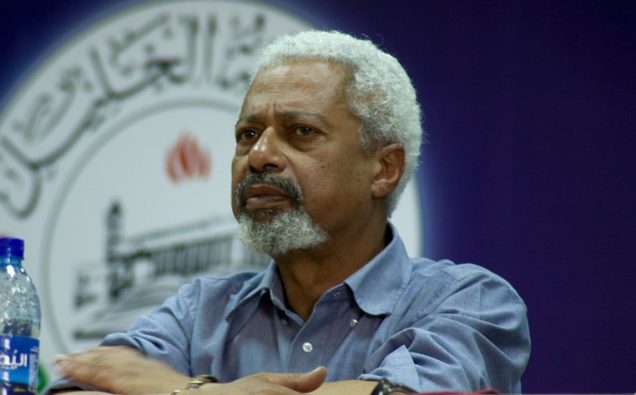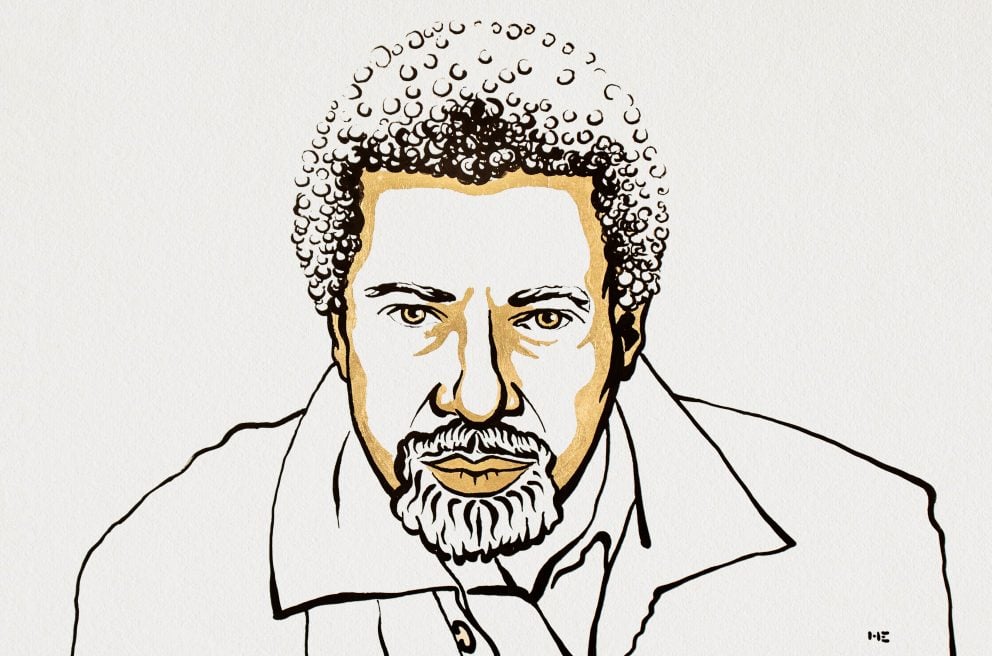
Tanzanian novelist Abdulrazak Gurnah, who dedicated his writings to stories of refugees and effects of colonialism, has been decorated with the 2021 Nobel Prize in Literature.
While making the announcement, the Nobel Committee acknowledged his work “for his uncompromising and compassionate penetration of the effects of colonialism and the fate of the refugee in the gulf between cultures and continents”.
Born in 1948, Gurnah grew up on the island of Zanzibar in the Indian Ocean but arrived in England as a refugee at the end of the 1960s. He has published ten novels and a number of short stories.
“The theme of the refugee’s disruption runs throughout his work,” the Nobel Prize organization named after its founder Alfred Nobel, noted.
Gurnah was sensitive to the ordeals of refugees and the questions of identity that arose under colonialism as he witnessed things first hand first as a child, and then as a writer.
After the peaceful liberation from British colonial rule in December 1963, Zanzibar went through a revolution which, under President Abeid Karume’s regime, led to oppression and persecution of citizens of Arab origin; massacres occurred.
His biography reveals that Gurnah belonged to the victimized ethnic group and after finishing school was forced to leave his family and flee the country, by then the newly formed Republic of Tanzania. He was eighteen years old at that time.
It was years later in1984 that Gurnah was to return to Zanzibar, allowing him to see his father shortly before the father’s death.
Gurnah had been Professor of English and Postcolonial Literatures at the University of Kent in Canterbury, focusing principally on writers such as Wole Soyinka, Ngũgĩ wa Thiong’o and Salman Rushdie. He retired recently.
In his ten novels and a number of short stories, the theme of the refugee’s disruption courses through like a lifeline.
Gurnah started writing as a professional when he was 21-year-old in English exile, and even though Swahili was his first language, English became his literary tool. He has said that in Zanzibar, his access to literature in Swahili was virtually nil and his earliest writing could not strictly be counted as literature.
Arabic and Persian poetry, especially The Arabian Nights, were an early and significant wellspring for him, as were the Quran’s surahs.
But the English-language tradition, from Shakespeare to V. S. Naipaul, would especially mark his work. That said, it must be stressed that he consciously breaks with convention, upending the colonial perspective to highlight that of the indigenous populations. Thus, his novel Desertion (2005) about a love affair becomes a blunt contradiction to what he has called “the imperial romance”, where a conventionally European hero returns home from romantic escapades abroad, upon which the story reaches its inevitable, tragic resolution. In Gurnah, the tale continues on African soil and never actually ends.

Yet, Gurnah has avoided the ubiquitous nostalgia for a more pristine pre-colonial Africa. His own background is a culturally diversified island in the Indian Ocean, with a history of the slave trade and various forms of oppression under a number of colonial powers – Portuguese, Indian, Arab, German, and British – and with trade connections with the entire world. Zanzibar was a cosmopolitan society before globalization.
Gurnah’s writing is from his time in exile but pertains to his relationship with the place he had left, which means that memory is of vital importance for the genesis of his work. His debut novel, Memory of Departure, from 1987, is about a failed uprising and keeps us on the African continent.
His Works in English include:
Memory of Departure. – London : Jonathan Cape, 1987
Pilgrims Way. – London : Jonathan Cape, 1988
Dottie. – London : Jonathan Cape, 1990
Paradise. – London : Hamish Hamilton, 1994
Admiring Silence. – London : Hamish Hamilton, 1996
By the Sea. – London : Bloomsbury, 2001
Desertion. – London : Bloomsbury, 2005
The Last Gift. – London : Bloomsbury, 2011
Gravel Heart. – London : Bloomsbury, 2017
Afterlives. – London : Bloomsbury, 2020
The biography provided by the Nobel organization notes that “in Gurnah’s treatment of the refugee experience, focus is on identity and self-image, apparent not least in Admiring Silence (1996) and By the Sea (2001).”
“In both these first-person novels silence is presented as the refugee’s strategy to shield his identity from racism and prejudice, but also as a means of avoiding a collision between past and present, producing disappointment and disastrous self-deception.”














